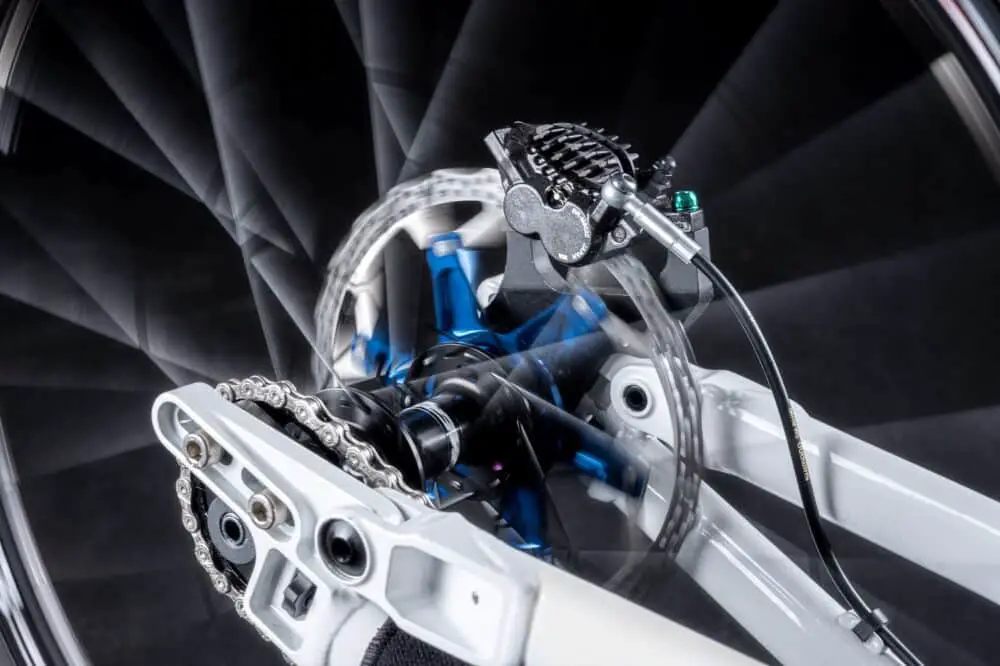Disc brakes play a crucial role in ensuring the safety of your vehicle. They are responsible for slowing or stopping your car and require proper maintenance to function optimally. However, many drivers are uncertain about the lifespan of disc brakes, which can lead to dangerous situations if they are not replaced in time. In this article, we will provide insights and tips on how long disc brakes last and how you can maximize their shelf life.
Key Takeaways
- Disc brake lifespan can vary depending on various factors such as driving conditions, maintenance practices, and brake pad quality.
- Signs of disc brake wear include noises, vibrations, and reduced braking performance.
- Regular maintenance practices such as inspections, cleaning, and proper pad replacement can help extend disc brake lifespan.
- Disc brakes are more durable than drum brakes and have a longer lifespan.
Understanding Disc Brakes
Disc brakes are a crucial part of a vehicle’s braking system, responsible for stopping or slowing the wheels by using friction. They consist of a rotor, which is attached to the wheel, and a caliper that houses one or more brake pads. When the brakes are applied, the caliper squeezes the brake pads against the rotor, creating the necessary friction to slow or stop the wheel’s rotation.
The average duration of disc brake performance depends on various factors, such as driving conditions, brake pad quality, and maintenance practices. However, a well-maintained disc brake system can generally last for around 30,000 to 50,000 miles before requiring replacement.
Longevity of Disc Brake Pads
The longevity of disc brake pads, which play a critical role in a disc brake system’s performance, depends on their material, quality, and usage. Brake pads made of high-quality materials, such as ceramic or metallic, can last longer than organic brake pads, which are usually more affordable. However, metallic brake pads can be noisy and cause more wear to the rotor than ceramic or organic pads.
The lifespan of brake pads can also vary depending on the driver’s habits and driving conditions. Frequent and aggressive braking can cause the pads to wear out more quickly, while gentle and conservative braking can extend their lifespan.
| Brake Pad Material | Longevity |
|---|---|
| Ceramic | 50,000 – 70,000 miles |
| Metallic | 25,000 – 70,000 miles |
| Organic | 15,000 – 30,000 miles |
It’s important to regularly check brake pads for wear and replace them when necessary to ensure the brakes’ optimal performance and longevity.
Factors Affecting Disc Brake Lifespan
Disc brakes are designed to last a long time, but their lifespan can vary depending on a number of factors. It’s important to be aware of these factors to ensure your brakes stay in good condition, providing reliable stopping power for as long as possible. Below are some of the most significant factors affecting disc brake lifespan:
| Factor | Description |
|---|---|
| Driving Conditions | The conditions in which you drive can have a big impact on your brakes. Frequent stop-and-go driving, driving in hilly or mountainous terrain, and towing heavy loads can all cause brakes to wear more quickly. |
| Brake Pad Quality | The quality of your brake pads can also affect their lifespan. Cheap, low-quality pads may wear out more quickly, while higher-quality pads can last longer. |
| Maintenance Practices | How you maintain your brakes can be another big factor in their lifespan. Regular maintenance, such as cleaning and inspecting your brakes, can help keep them in good condition. Neglecting your brakes, on the other hand, can lead to premature wear and damage. |
| Driving Style | Your driving style can also affect the lifespan of your brakes. Aggressive driving, such as frequent hard braking, can wear out your brakes more quickly. Gentle, smooth driving can help prolong their lifespan. |
By being aware of these factors and taking steps to minimize their impact, you can help ensure that your disc brakes last as long as possible. In the next section, we’ll look at some of the signs that your brakes may be wearing out, and when it’s time to replace them.
Signs of Disc Brake Wear
Disc brakes are an important component of your vehicle’s safety system. Knowing when to replace them is crucial to avoid potential accidents. Fortunately, disc brakes will exhibit several signs of wear, including:
- Noises: If you hear a grinding or squeaking noise when you use the brakes, it may indicate that the brake pads have worn to a level where they need to be replaced.
- Vibrations: Brakes that produce a vibrating or pulsating sensation when you use them may indicate warped rotors. If left unchecked, this can lead to a decrease in braking performance.
- Reduced Braking Performance: If you notice that it takes longer to stop your vehicle or that the brakes feel less responsive than usual, it may indicate that the brake pads are wearing thin and need to be replaced.
It’s essential to stay on top of brake maintenance to ensure your safety on the road. Experts generally recommend that you replace your disc brakes every 50,000 miles or whenever you notice any of the above signs of wear. However, it’s ultimately up to you to monitor your disc brakes and decide when they need to be replaced.
Maintaining Disc Brakes for Longevity
Regular maintenance of disc brakes can significantly increase their durability. By following these tips, you can keep your brakes in optimal condition for longer:
- Inspect your brakes regularly: Check your brake pads for wear and tear frequently. A good rule of thumb is to inspect them every 6,000 to 10,000 miles, depending on your driving conditions.
- Clean your brakes: Dirt and debris can accumulate on your brakes, reducing their effectiveness. Clean your brakes with a soft-bristled brush and brake cleaner to remove any buildup.
- Replace brake pads when needed: Replace your brake pads when they reach their minimum thickness, or if you hear any high-pitched noises when braking.
Properly maintaining your brake pads can also prolong the lifespan of other brake components, such as rotors and calipers.
In addition to these tips, there are other strategies you can use to extend the lifespan of your disc brakes over time:
- Avoid aggressive driving: Driving aggressively, such as sudden stops and starts, can put unnecessary stress on your brakes, causing them to wear out faster.
- Brake gently: Instead of slamming on your brakes, try to apply them gently. This can reduce wear and tear on your brake pads and increase their durability.
- Use high-quality brake pads: Investing in high-quality brake pads can pay off in the long run. They may cost more initially, but they are typically more durable and last longer than cheaper alternatives.
By following these maintenance tips and strategies, you can help ensure that your disc brakes provide reliable and long-lasting performance.
Extending Disc Brake Lifespan
Disc brakes are an essential component of your vehicle’s safety system. To ensure maximum performance and longevity, it’s important to take the necessary steps to maintain them properly. Here are some additional strategies to consider when trying to extend the lifespan of your disc brakes:
- Avoid aggressive driving: Sudden and hard braking can put a lot of stress on your disc brakes, causing them to wear out faster. To prevent premature wear, try to drive smoothly and maintain a safe following distance from other vehicles.
- Gently apply brakes: Applying the brakes gradually instead of slamming them on can help prevent wear and tear on your brake pads. This can also help to reduce the risk of overheating, which can cause significant damage to your brakes.
- Use high-quality brake pads: Cheap and low-quality brake pads may be attractive due to their lower cost, but they tend to wear out quickly and can even damage your discs. Investing in high-quality, durable brake pads will save you money and ensure your brakes last longer.
By following these simple strategies, you can significantly extend the lifespan of your disc brakes. However, it’s important to keep in mind that even with proper maintenance, disc brakes will eventually wear out and need to be replaced. Be sure to check your owner’s manual for guidance on how often your specific vehicle’s brakes should be inspected and replaced.
When to Replace Disc Brakes
Knowing when to replace your disc brakes is crucial for maintaining optimal braking performance and safety on the road. As a general rule, disc brakes should be replaced every 50,000 miles or when the brake pads reach a thickness of 3mm. However, the replacement interval for disc brakes can vary depending on driving conditions and maintenance practices.
If you notice any signs of disc brake wear, such as squeaking, grinding, or reduced braking power, it is important to have them inspected by a professional mechanic. They can determine if the brake pads need to be changed or if there is damage to the rotor or caliper that requires replacement.
Another factor to consider is how often you drive in stop-and-go traffic or hilly terrain. If you frequently apply your brakes in these conditions, your disc brakes may wear out faster than if you primarily drive on flat highways.
In addition to regular inspections, it is important to follow the recommended maintenance practices for your specific vehicle and driving habits. This includes replacing worn brake pads promptly, using high-quality pads and rotors, and avoiding harsh braking whenever possible.
By staying on top of your disc brake maintenance and replacement needs, you can ensure that your vehicle performs at its best and keep yourself and your passengers safe on the road.
Disc Brakes vs. Drum Brakes
When it comes to choosing between disc brakes and drum brakes, disc brakes are the clear winner in terms of lifespan and durability. While drum brakes were the standard for many years, disc brakes are now the industry standard thanks to their superior performance and longevity. Disc brakes typically last longer than drum brakes, providing a longer shelf life and greater value for your investment.
One of the main advantages of disc brakes is their ability to dissipate heat more effectively than drum brakes. This results in less wear and tear on the brakes over time, allowing them to last longer and require less frequent replacement. Additionally, disc brakes are less prone to brake fade, which can occur when the brakes become overheated and lose their ability to slow the vehicle effectively.
Another advantage of disc brakes is their ease of maintenance. With drum brakes, it can be difficult to inspect and replace brake shoes, while disc brakes offer easy access to the brake pads and rotors, making maintenance and replacement a breeze.
Overall, disc brakes are a smart choice for anyone looking for long-lasting, reliable brakes. Whether you’re a daily commuter or a weekend warrior, investing in disc brakes can give you peace of mind and save you money in the long run.
Conclusion
Understanding the lifespan of your disc brakes is an essential part of vehicle maintenance, and with the right care, you can extend their durability considerably. As we have seen, several factors can affect the longevity of your disc brakes, including driving conditions and the quality of the brake pads.
Regular inspections and maintenance will ensure your brakes are always in good working order, and replacing them promptly when necessary is crucial for your safety on the road. Remember that disc brakes offer several advantages over drum brakes, including better braking performance and a longer shelf life.
If you are unsure about the lifespan of your disc brakes, consult a qualified mechanic who can provide you with advice and guidance on their replacement. By taking good care of your disc brakes, you can enjoy a reliable, safe, and efficient driving experience for years to come.
FAQ
Q: How long do disc brakes last?
A: The lifespan of disc brakes can vary depending on several factors, including driving conditions and maintenance practices. On average, disc brakes can last anywhere between 30,000 to 70,000 miles. However, this is just a rough estimate, and it’s important to regularly inspect your brakes for signs of wear.
Q: What affects the lifespan of disc brakes?
A: There are several factors that can impact the lifespan of disc brakes. Driving conditions, such as frequent stop-and-go traffic or mountainous terrain, can put more strain on your brakes and cause them to wear out faster. The quality of brake pads you use, as well as your maintenance practices, can also affect how long your disc brakes last.
Q: How do I know if my disc brakes need replacing?
A: There are several signs that indicate it may be time to replace your disc brakes. These include squeaking or grinding noises when braking, vibrations in the brake pedal, and reduced braking performance. It’s also important to follow the recommended replacement interval for your specific vehicle, which can typically be found in the owner’s manual.
Q: How can I extend the lifespan of my disc brakes?
A: To extend the lifespan of your disc brakes, there are a few key maintenance practices you can follow. Regularly inspect your brakes for signs of wear, clean them regularly to prevent buildup of debris, and replace brake pads when necessary. Additionally, avoiding aggressive driving and gently applying the brakes can help reduce wear on your disc brakes.
Q: How do disc brakes compare to drum brakes in terms of lifespan?
A: Disc brakes generally have a longer lifespan compared to drum brakes. They are more durable and provide better braking performance, making them a popular choice for most vehicles. While drum brakes can still be found on some older models, disc brakes are generally considered to be more reliable and have a longer shelf life.




